Table of Contents
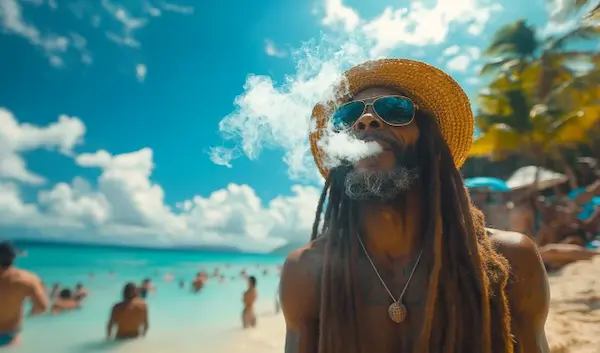
Introduction: The Culture of Reggae
You’ve heard the rhythm. You’ve felt the bass. Maybe you’ve swayed to a Marley tune or chanted “One Love” in a crowd of strangers who suddenly didn’t feel like strangers at all. That’s reggae culture. Reggae is a way of life, a spiritual vibration, and a cultural movement that extends well beyond Jamaica’s boundaries.
So, what is reggae culture, really? Is it the music? The dreadlocks? The red, gold, and green? The answer is all of that—and more.
At its heart, reggae culture is about expression, identity, and resistance. It was born from struggle, shaped by spirituality, and powered by rhythm. But it’s also about joy, dance, healing, and connection. Whether you’re in Kingston, Berlin, Accra, or Byron Bay, reggae speaks the same universal language: freedom, unity, and love.
This post is your deep dive into the world of reggae culture, exploring the values that drive it, the voices that shape it, and the rhythms that carry it. We’re not just talking about music—we’re talking about a living, breathing cultural force that continues to evolve.
So grab a cup of organic coffee, press play on your favorite dub track, and let’s explore the roots and branches of reggae culture together.
The Roots of Reggae Culture: Born from Fire, Raised in Spirit
Reggae didn’t just come out of a studio—it came out of the streets, the hills, and the heartbeat of a people searching for voice and meaning.
Back in the 1960s and ’70s, Jamaica was going through it. Political unrest. Social inequality. Colonial leftovers that hadn’t quite packed up and left. For the average Jamaican youth, life was tough, but spirit? Unbreakable.
That’s where reggae culture found its spark—not just in the music, but in the attitude. The confidence to wear your hair natural when the system told you not to. The courage to speak patois instead of the Queen’s English. All that’s needed is a guitar, a drum, and a message to chant down Babylon.
Reggae culture rose from those fires with a purpose: to rebel, to heal, to awaken.
But rebellion alone doesn’t build a culture. You also need spirit—and that came through Rastafari. Reggae culture and the Rastafarian movement became intertwined, not just in sound but in soul. The music gave voice to the faith. The faith gave depth to the music. And together, they gave the world something timeless.
This is where reggae stopped being just music. It became medicine. Message. Movement.
And today, you’ll find that movement pulsing in places you’d never expect—from Nairobi street corners to Tokyo dance halls to Byron Bay festivals. Different faces, same rhythm. Since the roots are deep and have no boundaries.
Reggae Artists & Musicians: Cultural Messengers with a Mic
Reggae musicians aren’t just performers — they’re messengers. Poets. Prophets. Street-level philosophers with rhythm in their bones and revolution in their blood.
From the early days, Jamaican reggae artists understood their role wasn’t just to entertain — it was to uplift, to question, to reflect what was really happening in the hearts and homes of everyday people. That’s what makes a reggae artist different. The lyrics might make you dance, sure — but they also make you think.
From Trenchtown to the World
Of course, you can’t talk reggae without giving thanks to the greats. Bob Marley, Peter Tosh, Dennis Brown, Burning Spear, Culture, Toots and the Maytals—these legends weren’t just musical icons, they were cultural anchors who brought the fire of reggae culture to international stages. They gave us anthems of rebellion, spiritual reflection, and fierce love.
But reggae didn’t stop there. New generations of reggae musicians kept the torch burning — some with deep roots in tradition, others blending in soul, hip-hop, and Afrobeat. Artists like Chronixx, Protoje, Koffee, and Lila Iké are proving that reggae culture is alive, evolving, and still deeply spiritual.
Reggae Artists Around the Globe
Today, top reggae artists aren’t just from Jamaica. Reggae culture has bloomed in Africa, Europe, the U.S., Australia — even Japan. You’ll find reggae bands and reggae groups playing to packed festivals in Nairobi, London, São Paulo, and Berlin. The sound may be universal, but the soul? That still flows straight from the root.Whether they’re singing about police brutality, ancestral pride, or spiritual awakening, these artists all share a common thread: they use their platform to speak truth. And that’s the heart of reggae culture — using music as message.
Rastafari: The Cultural Backbone of Reggae
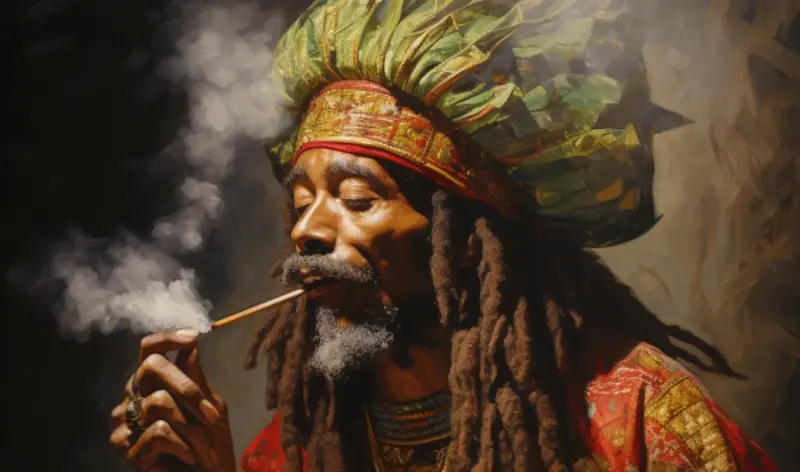
Ask anyone what comes to mind when they hear the word reggae, and chances are they’ll mention dreadlocks, red-gold-and-green, and a laid-back vibe that somehow feels deeply spiritual. That’s the unmistakable mark of Rastafari — not just a faith, but a cultural force that helped shape reggae’s identity and international image.
But here’s the thing: reggae didn’t just borrow from Rastafari. The two grew up side by side, feeding off one another. Reggae gave the movement a soundtrack. Rastafari gave the music its soul.
At the street level in Jamaica, Rastafari was never just about belief — it was about liberation, identity, and self-respect. In a society still dealing with colonial residue, Rastafari offered a way to reclaim dignity and culture. And through reggae music, those messages began to ripple outward.
It wasn’t just the lyrics — it was the attitude. Artists like Bob Marley didn’t just sing about change; they looked like change. They lived it. That’s why so many reggae fans around the world — even those who’ve never heard of Haile Selassie — still feel a spiritual pull in the music. There’s a reverence to it. A rhythm with purpose.
For many reggae artists, Rastafari is more than faith. It’s the cultural language they use to communicate values like oneness, natural living, and freedom from mental chains. You don’t have to understand every reference to feel the weight of the message. The allure of reggae culture is that it speaks to the soul in ways that go beyond words.
Despite the fact that not all reggae artists are Rasta, the genre is heavily influenced. In the lyrics. In the visuals. In the vibe. Even global fans — from LA to Lagos — catch the spirit of Rastafari through the music, often without even realizing it. So if reggae feels like more than just music to you, that’s no accident. It carries the DNA of a movement — one that blends rhythm, resistance, and reverence in a way no other genre quite can.
The Sound of Reggae: More Than a Beat, It’s a Language
You can spot reggae the second you hear it. That unmistakable rhythm, the laid-back tempo, the offbeat guitar chops — it’s like the music is breathing, slow and steady, like the pulse of the earth itself.
But what gives reggae its soul? It’s the sound — and more importantly, the message inside the sound.
Let’s break it down.
The Bass Line: Reggae’s True Voice
In the reggae music genre, the bass isn’t just low-end support — it’s the lead storyteller. Thick, melodic, and hypnotic, it carries the groove forward like a spiritual guide. Reggae bass lines aren’t flashy. They’re steady, intentional, and sometimes feel like they’re talking to you. If you’re ever unsure what a reggae song is trying to say, start with the bass.
Drums with Purpose
Then there’s the drum kit — specifically the one drop rhythm, where the emphasis hits on the third beat. It is completely different from the majority of Western pop music, and that small adjustment makes all the difference. It’s laid-back, yet powerful. It slows the world down — making space for deeper thought, for feeling the music rather than just moving to it.
The drum-and-bass combo (known in reggae as the riddim section) is the heartbeat of the culture. In many ways, this simple yet powerful groove is the definition of reggae music: clear, conscious, and always connected to something deeper.
Guitar, Keys & Horns: The Accent Crew
Reggae’s guitar rarely takes the spotlight, but its sharp, staccato “skank” on the offbeat gives the music its signature bounce. Think of it like the punctuation mark at the end of each musical sentence — short, tight, and full of attitude.
Meanwhile, the keyboards and organs fill out the harmonic space, adding texture and warmth. Sometimes they bubble gently in the background, and other times they step forward with a haunting line that stays with you.
And when horns enter the mix — especially in roots reggae and ska-influenced tracks — they bring celebration, urgency, and soul all at once.
Sound Culture: A Deeper Listening Experience
But here’s where reggae separates itself: the production itself is part of the culture. Whether it’s live shows blasting from towering sound systems or classic dub tracks full of echo and reverb, the sound is designed to be felt — not just heard.
Reggae doesn’t shout to get your attention. It pulls you in with vibe, with space, and with rhythms that demand you listen with your whole body.
Reggae isn’t just music — it’s communication. Every element, from the low bass thrum to the muted guitar chop, carries cultural meaning. You don’t just listen to reggae. You experience it.
Next time you hear a track, pay attention to how the instruments talk to each other. That conversation? That’s reggae culture, playing out in real time.
Living the Vibe: How Reggae Culture Shapes Identity
Reggae doesn’t stop when the song ends — that’s the thing. For many fans, the music becomes a mirror. A guide. A kind of heartbeat that syncs with how you carry yourself in the world.
For some, it starts with the sound. Maybe you discover reggae through Bob Marley on a road trip, or a roots playlist at a backyard barbecue. But something clicks. You start tuning into the lyrics — and suddenly, the messages about peace, resistance, and unity start to feel like something more. Like permission to live differently.
In reggae culture, there’s a powerful sense of freedom through authenticity. You don’t have to fit a mold. Whether you’re growing locs in Brooklyn, surfing in Santa Cruz, or cruising South Beach with a dub mix in your speakers — you’re part of something that connects people across backgrounds.
And that’s what makes reggae culture special in the U.S.
Reggae in the American Mindset
Americans are no strangers to protest music — but reggae hits differently. It’s not just about what we’re against; it’s about how we want to live. Reggae invites people to imagine a world rooted in connection, calm confidence, and cultural pride. And that invitation crosses boundaries.
That’s why reggae culture has found pockets of passion all across the States: from California’s roots-reggae festivals to Florida’s Caribbean neighborhoods, from reggae clubs in NYC to conscious college playlists in the Midwest. Even in rural towns, there’s always someone who knows every word to “One Love.”
And for Black Americans in particular, reggae culture often resonates as a celebration of African heritage, spiritual power, and resistance to systemic oppression — even if they don’t identify with the Rastafari faith directly. Reggae offers a cultural space that’s proud, uplifting, and unfiltered.
It’s Not About Look — It’s About Feel
You don’t have to wear red, gold, and green or quote Marcus Garvey to be part of reggae culture. It’s in your energy. Your rhythm. Your ability to show up real, even when the world pushes you to fit a mold.
Reggae culture doesn’t ask for perfection. It asks for presence.
And that’s why so many people — across race, gender, class, and age — find their identity shaped by it. Reggae equips you with the means to move through a cacophonous world with strength, purpose, and tranquility.
So whether you’re a musician, a DJ, a poet, or just someone who finds calm in a riddim — if you’re carrying that spirit with you, you’re living the vibe.
Reggae Culture: The Global Pulse of a Jamaican Sound
Welcome to the heartbeat of reggae. You’ve heard the grooves, felt the bass in your chest, and maybe even caught yourself swaying to a rhythm you couldn’t name. However, reggae is a movement rather than merely a sound. A global cultural force born from the soul of Jamaica, reggae culture has traveled far beyond its Caribbean roots to shape communities, spark resistance, and inspire connection across continents.
In this deep dive, we explore reggae not only as a genre of music, but as a reflection of identity, resistance, diaspora, fashion, language, and cultural exchange. You’ll meet the bands, understand the roots, and feel the pulse of a culture that refuses to be silenced.
What Is Reggae? More Than Music
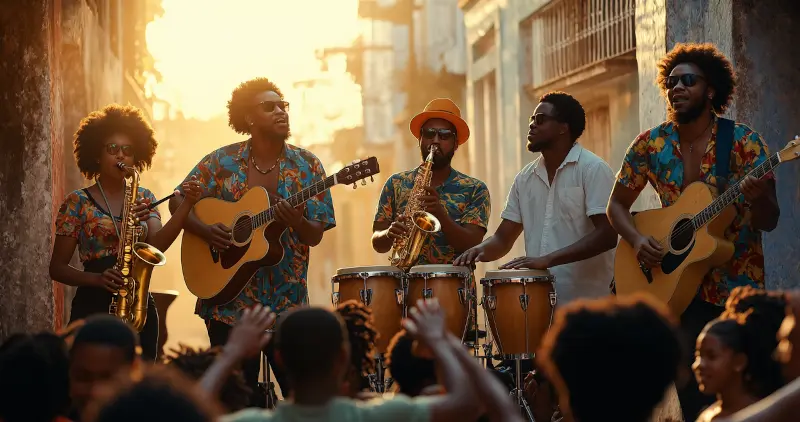
Ask someone to define reggae and they might mention Bob Marley, a laid-back rhythm, or that signature one-drop beat. And they wouldn’t be wrong. But reggae is more than its musical markers. It is, at its core, a cultural expression—a way to speak truth to power, to celebrate life, and to resist oppression.
Emerging from Kingston, Jamaica in the late 1960s, reggae evolved from ska and rocksteady, blending syncopated guitar riffs, prominent basslines, and spiritually charged lyrics. Reggae artists didn’t just perform; they preached, protested, and prophesied. The genre became a canvas for identity, black consciousness, and Jamaican pride. And soon, it would speak to the world.
Reggae’s Cultural Roots: Born of Jamaica, Raised by the World
Jamaica in the 1960s was a place of change—politically, economically, and spiritually. The island had gained independence in 1962, but colonial influence lingered. Urban ghettos were swelling with poverty, and people longed for liberation beyond politics.
Reggae emerged as a response. The music voiced the struggles of the working class, the spiritual awakening of Rastafari, and the resilience of the Jamaican people. It gave identity to a new generation born into a post-colonial reality, expressing their pain, joy, and hope through bass and lyrics.
Soon, reggae artists like The Wailers, Jimmy Cliff, and Toots and the Maytals began to gain international attention. Their music wasn’t just Jamaican anymore—it was a global language.
Reggae Musicians: Storytellers of a Culture
From Kingston to California, reggae musicians have always been more than entertainers. They’re historians, prophets, and storytellers. Each lyric carries cultural weight. Each beat echoes the heartbeat of the people.
Whether it’s the resistance anthems of Peter Tosh, the smooth ballads of Gregory Isaacs, or the militant roots of Burning Spear, reggae musicians embody cultural truth. Modern acts like Chronixx, Protoje, and Koffee continue the legacy—merging old-school foundations with fresh energy.
Reggae bands and groups, including Black Uhuru, Steel Pulse, and Third World, added new textures to the genre, reflecting the evolution of reggae from its raw roots to its more refined expressions. They’ve performed at global festivals, used their platform for advocacy, and helped shape reggae’s identity far beyond the shores of Jamaica.
Reggae as Diaspora Culture
What makes reggae culture truly global is how it has resonated with the African diaspora. Jamaican immigrants carried reggae to the U.K., Canada, the U.S., and Africa—where it fused with local stories, struggles, and rhythms.
In London, reggae helped Black British youth articulate their experiences. In Africa, it reconnected modern generations with Pan-African consciousness. In the U.S., reggae found a home in the counterculture movements of the 1970s and 80s, resonating with Civil Rights activists, hippies, and college campuses alike.
The genre’s appeal lies in its message. Reggae doesn’t demand you to dance—though you might—it demands that you listen.
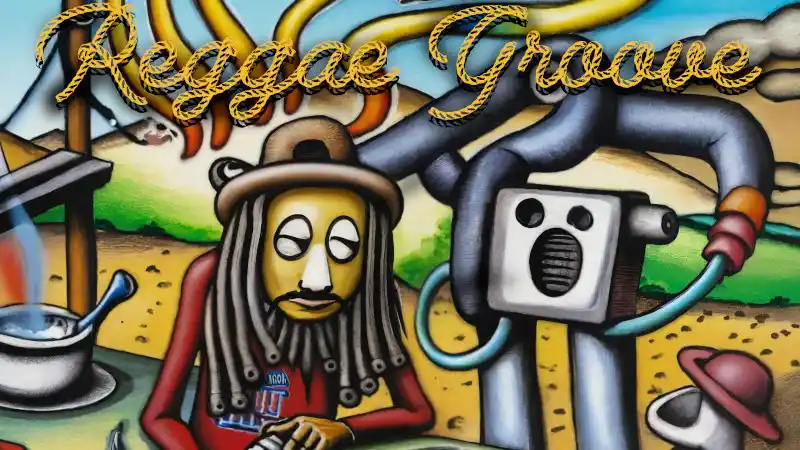
The Reggae Music Genre: Soundtracking Resistance
One of the defining aspects of reggae music is its message. At its heart, reggae is protest music.
Themes in reggae lyrics span a wide spectrum:
- Social justice
- Inequality and poverty
- Colonial history
- Diaspora identity
- Peace and love
Songs like “Equal Rights” by Peter Tosh, “Get Up, Stand Up” by Bob Marley, or “Police and Thieves” by Junior Murvin remind listeners that reggae isn’t passive background music—it’s a call to action.
Even instrumental reggae, especially in dub, has a haunting, meditative power. The bass becomes a hypnotic pulse; the echo and delay effects create a space of spiritual reflection.
Reggae Fashion and Symbolism
Reggae’s influence isn’t limited to sound. You see it in what people wear, how they move, and the symbols they hold dear.
- Colors: Red, gold, green, and black are more than style—they’re identity. Rooted in the Ethiopian flag, these colors have become global symbols of reggae culture.
- Dreadlocks: Worn as a spiritual statement or cultural badge, dreadlocks are iconic within reggae and Rastafari circles.
- Clothing: From mesh tams to African prints, reggae fashion promotes pride in African roots and solidarity with marginalized groups.
Fashion becomes part of the message. It reflects natural living, pride, and nonconformity.
The Global Festival Scene: Reggae Around the World
From Jamaica’s Rebel Salute and Reggae Sumfest to Spain’s Rototom Sunsplash and the U.S.’s Cali Roots Festival, reggae festivals have become global hubs for community, music, and activism.
These gatherings bring together reggae musicians, sound systems, dub artists, and conscious speakers in celebration of unity. Attendees aren’t just there to watch a show—they’re there to belong. To vibe. To experience reggae culture firsthand.
Festivals serve as cultural melting pots, allowing reggae to morph, hybridize, and evolve while staying true to its roots.
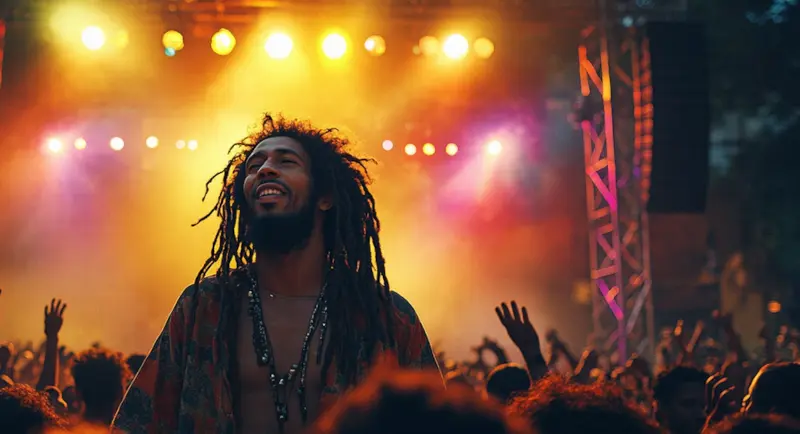
Language and Expression in Reggae Culture
To understand reggae culture is to understand its language. Jamaican Patois has shaped reggae lyrics into a distinctive form of expression, filled with idioms, double meanings, and cultural references.
Terms like “irie” (good/peaceful), “tings” (things), and “wah gwaan” (what’s going on?) are more than slang—they’re a rhythm of speech that carries the pulse of the islands.
This unique linguistic style has influenced global music and even pop culture. Dancehall and reggae expressions have found their way into hip-hop, Afrobeat, and global youth slang.
Reggae’s Influence Across Genres
Reggae may have started in Jamaica, but its DNA is found in dozens of genres:
- Hip-hop owes much to Jamaican toasting and sound system culture
- Punk and ska revival in the UK were directly shaped by reggae
- Pop music regularly borrows reggae’s offbeat rhythm and laid-back vibe
- Afrobeats artists draw from reggae’s themes and instrumentation
Artists from Snoop Dogg (as Snoop Lion) to The Police, Rihanna, and Major Lazer have incorporated reggae aesthetics. Even country and EDM have taken reggae turns.
This cross-pollination keeps reggae fresh and culturally relevant.
Why Reggae Culture Matters Today
In a world facing social division, climate crises, and spiritual confusion, reggae culture stands as a reminder: another way is possible.
Reggae promotes unity, resistance, joy, and reflection. It brings people together without requiring perfection. You don’t need to be Jamaican, Rasta, or even a longtime fan. You just need to feel the rhythm and hear the message.
Reggae’s cultural weight lies in its authenticity. It’s not here to sell you fantasy. It’s here to speak the truth.
Final Thoughts: Keep the Culture Alive
Reggae culture is still evolving. It’s in the vinyl shops of Kingston, the block parties of Brooklyn, the festivals of Spain, the dancehalls of Lagos, and the playlists of Gen Z listeners who may never have seen a Marley album on a record shelf.
If you’re new to reggae, let it guide you. If you’re a fan, keep digging. And if you’re part of the movement, keep the flame burning.
Because reggae culture isn’t a trend. It’s a rhythm. A resistance. A way of seeing the world.
Explore more:
- [The Evolution of Reggae Music: Ska to Dancehall]
- [Best Reggae Playlists to Vibe To]
- [Top Reggae Artists You Should Know]
- [Reggae and Rastafari: Spiritual Roots of the Music]
Stay irie.
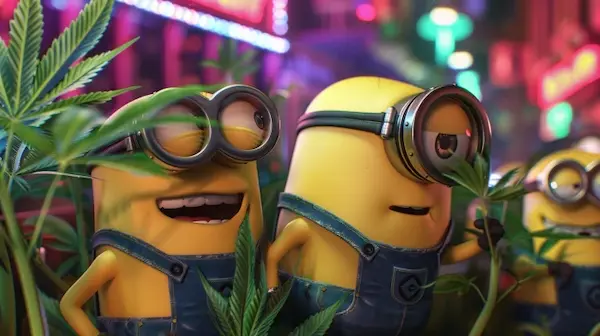
Reggae Music Can Change the World
Welcome to the Reggae Groove blog — your source for roots music, reggae culture, conscious living, and artist insights. Discover new playlists, interviews, and the history behind the “riddims”.
The Evolution of Reggae Genres: Ska, Rocksteady, Roots, Dub & Dancehall
The Evolution of Reggae Styles To properly explain reggae genres, you must understand that Reggae music is more than a sound—it’s a cultural movement that tells the story of Jamaica’s social struggles, spiritual awakenings, and vibrant rhythms. What began as local street music in Kingston grew into one of the world’s most influential music genres….
Our 50 Top Reggae Songs of All Time
Reggae Music’s All Time Top 50 The 50 top Reggae songs have made a lasting impression on the world of music. Their rich lyrics and distinctive rhythm have captivated a worldwide fanbase. The genre, which originated in Jamaica, has expanded and influenced the development of many other musical genres. The genre’s enduring appeal is demonstrated…
The World’s Best Reggae Festivals
The World’s Greatest Reggae Festivals: A Reference Book for Music Enthusiasts Reggae is a movement as much as a genre of music. It’s a sound that conveys resistance, love, and solidarity. By attending the best reggae festivals you experience the power and emotion that can be generated when people are brought together by love. Whether…
The Wailers: From Trenchtown Harmony to Global Icons
The Formative Years: Humble Beginnings in Trenchtown Every story in reggae history seems to trace back to Trenchtown, and The Wailers were no exception. It wasn’t the kind of neighborhood that encouraged dreams of global fame. Sheet-metal houses leaned together, poverty pressed in from all sides, and daily survival often took priority over art. Yet…
Reggae Dance Styles Explained: How to Groove to Every Beat
Introduction: Feel the Rhythm, Move Your Soul When you hear a reggae beat, something stirs in your body before your brain even catches up. It’s that offbeat rhythm, the deep pulse of the bass, the ancestral echo that says: move. Reggae dance styles are more than steps — they’re an invitation to feel, connect, and…
Lee “Scratch” Perry: The Upsetter’s Wild Genius
Introduction: The Mad Scientist of Reggae Lee “Scratch” Perry was a tough person to define. Depending on who you asked, he was a madman, a prophet, or a musical genius. Sometimes he embodied all three in a single day. Perry undoubtedly altered the direction of current music, dub, and reggae. While Bob Marley’s voice introduced…
The Function of Bass in Reggae Music
The Function of Bass and Rhythm in Roots Music: The Burning Heartbeat of Reggae Mad Collective Connection’s distinct musical pulse connects with our listeners on an emotional level. Unlike many other genres, bass in reggae music has a fundamental role, combining with drums to create a distinctive groove. In addition to the beat’s distinctive timing,…
Jamaican Sound Systems: How Jamaican Toasting & DJ Culture Conquered the World
Introduction: The Rise of Reggae Sound Systems Before reggae conquered the world stage, its powerful rhythms boomed from hand-built speakers on the vibrant streets of Kingston, Jamaica. The reggae sound systems, which were large, movable sets that brought music, messages, and movement straight to the people, were at the center of this vibrant street culture….
Rocksteady Music: Jamaica’s Short-Lived Sound That Shaped Reggae Forever
Rocksteady Music: The Jamaican Sound That Gave Rise to Reggae When we think of Jamaican music, reggae usually takes center stage, but before reggae became a global force, another sound ruled Kingston’s dancehalls for a brief yet crucial period: rocksteady music. Born in the mid-1960s, rocksteady may have lasted only a couple of years before…
Reggae Instruments: The Sound Behind the Music
Introduction: Reggae Instruments Make the Sound From the laid-back riddims of Bob Marley to the deep dub grooves of King Tubby, reggae has a signature sound that is instantly recognizable. But what gives reggae music its infectious pulse and irie vibe? The answer lies in its distinct array of reggae instruments—each playing a unique role…
Mad Collective Connection Live at Nimbin MardiGrass
A Raw Glimpse of MCC Live at Nimbin MardiGrass Mad Collective Connection Live at Nimbin MardiGrass shows reggae is about truth, unity, and real vibes—not perfection. That’s why MCC are showing this raw, unfiltered moment from their performance at the MardiGrass Festival in Nimbin’s Main Hall. It’s not polished, it’s not glamorized – it’s real….
The Ultimate Reggae Fan’s Guide to Jamaican Patois
Introduction: Why a Jamaican Patois Translator Matters I am the quintessential white Jock (Literally as I was born in Scotland) and found myself playing in a reggae band with a group of Jamaican and African friends. The guys were polite and always spoke to me in clear English, but when they spoke to each other…
Mento: The Jamaican Folk Music That Sparked a Musical Revolution
Mento: Jamaican Folk Music Evolves When people think of Jamaican music, reggae and Bob Marley usually spring to mind. But long before reggae’s offbeat rhythm swayed the world, another style was already making Jamaica dance — Mento. This homegrown folk music, born in the hills and villages of rural Jamaica, set the stage for ska,…
New Age Reggae Culture Revival – Bigger Than the 70’s
The Reasons Behind the Global Resurgence of Reggae Culture A reggae cultural revival is taking the world by storm. From Kingston’s streets to Australia’s beaches and the South African townships, the rhythm is catching fire. But this isn’t just a nostalgic throwback. This is a cultural revival. A new generation is tuning into reggae—not just…
The Echo Chamber: The History of Dub Music
Introduction: What Is Dub Music? To understand the global soundscape of modern music — from remix culture to electronic beats — you have to start in a small Kingston studio in the late 1960s. This is where Dub music was born. But what is Dub music exactly? Dub is more than a subgenre of reggae….
King Tubby: The Architect of Dub and Sound System Innovation
Introduction: The Sound Scientist of Dromilly Avenue In the bustling streets of Waterhouse, Kingston, where zinc fences vibrated with each bassline and evenings buzzed with sound clashes, a quiet man was reshaping music. Osbourne Ruddock, better known as King Tubby, was not the usual reggae icon. He wasn’t a flashy singer or a bold deejay….
Rasta Hats: The Complete Guide to the Tam, Symbolism, and Iconic Reggae Headwear
What Is a Rasta Hat? A Rasta hat—often referred to as a tam, rastacap, or crown—is much more than just a colorful beanie. It’s a vibrant cultural symbol rooted in Rastafari spirituality and the reggae lifestyle. Traditionally, it’s a large, rounded, hand-crocheted cap designed to protect dreadlocks while representing the wearer’s deep spiritual and cultural…
Reggae in the UK: A Story of Migration, Identity, and Sound System Culture
UK Reggae and Reggae Culture When reggae comes up in conversation, Jamaica is usually the first place that pops into people’s minds. But what often gets missed is how this genre has truly taken root in other parts of the world—especially in Britain. UK Reggae isn’t just a replica of Jamaican sounds shipped over the…
10 Best Dub Albums: Your Gateway to the Echo Chamber
Introduction to the Best Dub Albums Dub reggae is a fascinating and unique slice of music history and the best dub albums are always a matter of taste. For some, dub feels like reggae trapped in a hall of mirrors… basslines stretching endlessly, drums echoing into the void, and vocals drifting in and out as…
Ska Jazz: Where Jamaican Rhythm Meets American Sophistication
Introduction – Jazz Meets the Offbeat Ska jazz was, in many ways, was almost an inevitable subgenre, as it represents a blend of the lively rhythms of Jamaican ska and the improvisational sophistication of American jazz. Starting in the late 1950s, ska jazz combined the energetic offbeat rhythms characteristic of Jamaica with the horn-centric tunes,…
6 Modern Reggae Artists Keeping the Tradition Alive
Introduction – Reggae as a Cultural Identity More than just a musical style, reggae has always stood for a cultural movement, a philosophy, and a soundtrack for both solidarity and resistance. Starting in Jamaica during the late 1960s, reggae amplified the voices of the marginalized, provided a rhythm for protest, and shared the spiritual teachings…
Lovers Rock: The Sweet Sound of Reggae’s Romantic Heart
Lovers Rock: The Romantic Sound of Reggae and Its Lasting Legacy When people think of reggae, the mind often goes to Bob Marley, protest songs, or deep basslines carrying messages of survival. But within reggae’s vast landscape lies a softer corner—one where the music sways rather than marches, and where the lyrics whisper about matters…
Reggae Fashion & Style: From Rasta Colors to Modern Streetwear
Introduction – Reggae as a Cultural Identity Reggae is a mood, a lifestyle, and let’s be honest, a fashion statement that you can spot a mile away. One look at those vibrant Rasta colors—red, gold, green, and sometimes black—and you instantly feel the irie vibes. But reggae fashion goes way beyond a knitted tam hat or…
The History of Reggae Music: A Timeline of Its Evolution from Mento to Dancehall
Reggae History: Mento to Dancehall & Beyond This timeline of reggae music showcases the genre’s remarkable evolution. Reggae is more than a music genre—it’s the sound of Jamaica’s soul. It tells stories of freedom, struggle, and cultural pride. But reggae didn’t just appear overnight. It evolved through decades of rhythmic revolutions—from mento’s rural folk beats…
A Religion of Reggae and Spirituality
Reggae and Rastafari: A Religion of Spiritualism and Reggae Music Reggae and spirituality are closely intertwined with the Rastafari faith. Reggae songs provide a strong medium for the spread of resistance, love, and spiritual enlightenment. From the anthems of Bob Marley to the mystical echoes in lesser-known tracks, the connection between reggae and Rastafari is undeniable. This…
Best Reggae Artists Of All Time
Best Reggae Artists You Should Know (Classic & Modern) Reggae music has greatly influenced popular music for decades. It began in Jamaica and has reached fans globally. Reggae artists blend unique rhythms with meaningful messages. Over time, reggae has branched out into many styles. From its early days to today’s reggae music artists, it continues…
The Impact of Reggae Music
The Impact of Reggae on Contemporary Music: From EDM to Hip-Hop The impact of reggae music is extensive. Far more than just a music genre, it is the rhythm of defiance, and the starting point for innumerable subsequent styles. Reggae, which originated on the streets of Kingston, Jamaica, has spread its messages of love, solidarity,…
Ska to Punk: How Reggae Fashion Was Redefined by the UK’s Two-Tone Movement
Two-Tone Fashion: Ska to Punk Style & Reggae Influence Reggae’s rich cultural identity is just one of its many facets. Cultural identity is particularly noticeable in reggae fashion. While Jamaica gave birth to the foundational rhythms and Rastafarian-inspired attire, the late 1970s in the United Kingdom saw a revolutionary fusion of sounds and styles that…
Chronixx and Lila Iké: The Future of Conscious Reggae Music and Global Fusion
Introduction Chronixx and Lila Iké are at the forefront of a new wave in conscious reggae fusion — a vibrant sound that intertwines Rastafari spirituality, traditional roots rhythms, and modern influences like hip-hop, soul, and R&B. Their music serves as a bridge, connecting the rich cultural heartbeat of Jamaica with a fresh generation around the…
Reggae Artists Guide: Legends, New Artists, & Pioneers
/ Reggae Artists Any reggae artists guide has to start with Ska and Rocksteady. These were the original Jamaican sounds that paved the path for reggae in the late 1960s. Influential individuals like Bob Marley helped the genre become well-known by using it as a platform for social reform and unity. Its themes of resistance,…
What is Reggae? – A Reggae Music Guide
Our reggae music guide starts with its inception in Jamaica before discussing how it captured the world. Reggae music is known for its special rhythm and focus on fairness, but its definition requires more more than understanding the music, you have to understand the movement. What is Reggae For newcomers, diving into reggae music is…
The True Hip-Hop Origins: How Jamaican Sound Systems Built a Genre
Introduction: Hip-Hop More Than a Bronx Story When you ask people where hip-hop started, most will say the Bronx in the 1970s, and, although this is correct, it doesn’t provide the complete picture. The origins link back to Kingston, Jamaica, across the Caribbean Sea. Hip-hop is a cultural exchange between these two places: one known…
Grammy for Best Reggae Album: Reggae’s Most Prestigious Award
Introduction: Reggae’s Golden Moment Reggae is more than just a genre, it’s a movement, a heartbeat, and a universal language of resistance and rhythm. And when reggae’s finest gather each year for the Grammy Awards, the world tunes in to see which album will be crowned Best Reggae Album. From the first Grammy for Best…
The 10 Most Iconic Reggae Music Videos & Their Stories
Introduction – Iconic Reggae Videos Music videos have always been more than just visuals for songs. At their best, they are short films that create a mood, capture a cultural moment, or tell a story that words and music can’t fully convey. For reggae, a genre steeped in rhythm, resistance, and cultural heritage, music videos…
Bob Marley and His Profound Influence on Reggae
Introduction: The Man Who Made Reggae a Global Language Few names in music history carry the weight and universal resonance of Bob Marley. When people ask, “What was Bob Marley known for?” or “Why was Bob Marley important?”—The response reverberates through decades of sound, hope, and transformation. Marley was more than a singer. He was…
Reggae Music Healing Powers
The Power of Reggae Vibes Reggae music healing is a force of nature that soothes the soul and lifts the spirit. Reggae has always conveyed messages of love, peace, and resiliency, because of its strong origins in Jamaica and global appeal. Whether you’re going through a tough time or just need to unwind, the steady…
Reggae Quotes That Will Lift Your Soul
The Best Reggae Quotes “One good thing about music, when it hits you, you feel no pain.” – Bob Marley quote. Reggae quotes touch our hearts and lift our spirits. Reggae music, rooted in Jamaican culture, inspires and motivates us. Artists like Bob Marley have given us uplifting messages that reach people worldwide. In this…
Peter Tosh: The Stepping Razor – A Profile in Reggae Rebellion
Introduction Peter Tosh, known as The Stepping Razor of reggae, wasn’t just another star. He was an uncompromising rebel. While Bob Marley carried the flag of unity, Tosh wielded the sword of justice. A roots reggae pioneer, activist, and passionate lyricist, he turned songs like Legalize It and Equal Rights into protest anthems that still…
Bob Marley’s Reggae Influence: How His Music Became a Global Anthem for Justice
Summary: How Bob Marley’s Music Inspired the World Bob Marley’s influence on music spans genres from rock and hip-hop to pop, primarily due to five revolutionary factors: Continue reading for a deep dive into each factor… Introduction – Bob Marley’s Music Few artists have shaped both a musical style and a view on life. Reggae…
Reggae Fusion: From Dancehall to Mainstream
A Brief History of Reggae Fusion While it may feel like a modern phenomenon, reggae fusion has been in the works since at least the 1980s. Back then, Jamaican dancehall artists were experimenting with digital production, moving away from the purely organic sound of roots reggae. The beats were faster, the lyrics often more playful…
